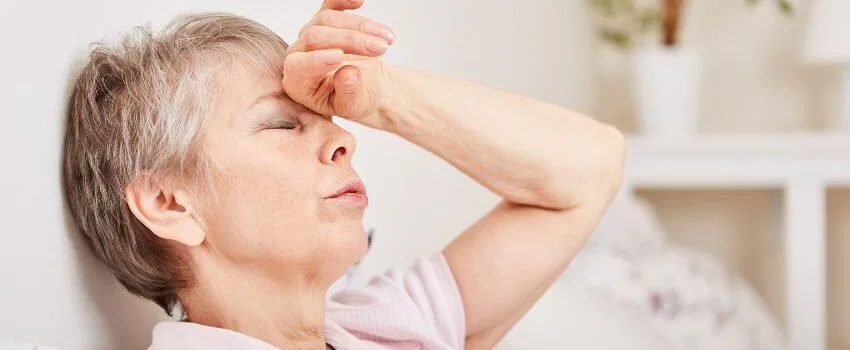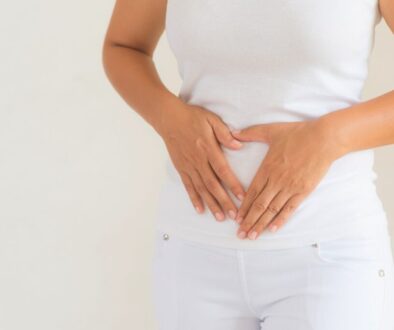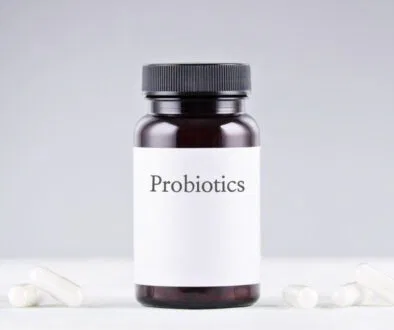How to Stop Post Nasal Drip Nausea

Published July 28, 2023
When you have a sinus infection or severe cold and flu, you sometimes tend to feel dizzy and queasy. Because of that, most people think that sinusitis can cause nausea.
But the truth is, it’s not the sinus infection itself that causes that nauseous feeling. It’s the post-nasal drip.
Post-nasal drip occurs when your sinuses produce more mucus than usual and the excess mucus drips down the back of your nose to your throat. This usually happens when your sinuses are infected. But sometimes, it can also be due to common cold, flu, allergies, and various other factors.
If you’re tired of dealing with post nasal drip nausea, keep reading. In this post, we list down some of the most effective ways to treat and prevent it. But first, you need to understand why it happens.
Why Does Post-Nasal Drip Cause Nausea?
There are several interconnected factors why postnasal drip can lead to nausea, such as:
1. Irritation of the Stomach Lining
As I said, post-nasal drip happens when nasal mucus drips down the back of your nose to your throat. Over time, the excess nasal mucus will build up and go down your stomach. This build up of mucus is the perfect breeding ground for bacteria which, in turn, can irritate your stomach lining. An irritated stomach is one of the main causes of nausea and dizziness.
2. GERD (Gastroesophageal Reflux Disease)
People with GERD and experience post nasal drip are more likely to get nauseated. GERD is a condition where stomach acid flows back up into the esophagus, causing irritation and inflammation. The combination of post-nasal drip and stomach acid reflux can lead to a higher risk of nausea.
3. Gag Reflex
The sensation of mucus constantly dripping down the throat can trigger gag reflex in some individuals. In the long run, this can lead to an uncomfortable feeling that may induce nausea.
4. Sensory Overload
The feeling of having mucus constantly dripping down the throat can be distressing for some people. This can trigger a heightened sensory response that can make one feel queasy.
5. Viral Infections
Post-nasal drip is often a symptom of viral infections like the common cold or flu. These infections can cause systemic symptoms, including nausea.
6. Anxiety or Stress
Dealing with chronic post-nasal drip or the constant need to clear the throat can lead to anxiety or stress, which may contribute to nausea.
Keep in mind, however, that postnasal drip isn’t the only condition that can cause post nasal drip. It’s essential to differentiate whether your nausea is directly caused by post-nasal drip or if it is a result of another underlying condition.

How to Stop Nausea From Post Nasal Drip
There are several ways to control or relieve nausea. You can try:
- Drinking clear or ice-cold drinks.
- Eating light and bland foods (e.g., crackers or plain bread)
- Avoiding fried, greasy, or sweet foods
- Eating smaller but frequent meals.
- Staying hydrated
There are also natural ways to ease the discomfort that nausea brings you. These include:
- Eating ginger. Ginger is famous for reducing nausea and calming an upset stomach.
- Try Peppermint Aromatherapy. One study shows that peppermint oil can be a useful supplement in alleviating nausea.
- Slice a lemon. One study showed that lemon scent effectively reduces nausea and vomiting during pregnancy. But this may work for those suffering from post-nasal drip nausea too.
While the above treatments for alleviating nausea are effective, they are only temporary solutions. Think of them as a first-aid solution. The best way to avoid post-nasal drip nausea is, obviously, preventing post-nasal drip.
Here are some of the most effective ways to get rid of postnasal drip:
- Treat Underlying Allergies. If your post-nasal drip is triggered by allergies, talk to your doctor to identify the allergens causing the problem. They’ll most likely recommend allergy medications, nasal corticosteroids, antihistamines, or allergy shots (immunotherapy) to help manage your allergies.
- Treat Sinusitis. For sinusitis-induced post nasal drip, getting rid of your sinus infection can get rid of the problem. You can try nasal irrigation, decongestants, or antibiotics (if it’s caused by a viral infection).
- Avoid Irritants. Stay away from smoke, strong odors, pollutants, and other irritants that can worsen post-nasal drip.
When to Call a Doctor
If nausea does not subside with the natural remedies mentioned above or with over-the-counter medications, contact your physician or go to the nearest hospital. Nausea can also be a symptom of a medical emergency, which may require immediate medical attention.
Benefit From The Latest Advancements In Probiotic Science With Bionaze
Bionaze is a proprietary blend of probiotics proven to promote ear, nose, and throat health, improve digestion, and support your immune system. The active ingredients BLIS K12, and BL-04 are considered among the best probiotics according to science.
Get 25% Off Your First Order when you use BIO25 at checkout!

This Content Has Been Reviewed For Factual Accuracy
This content has undergone thorough fact-checking by our team of internal experts. Learn more about the meticulous editorial standard for our website here.
ADVERTISEMENT

About The Author
Judy Ponio is a professional writer based in the Philippines. Her commitment to communicating factual content in when writing is unmatched. She works hard to cross check reputable sources to ensure her work uses accurate facts.




